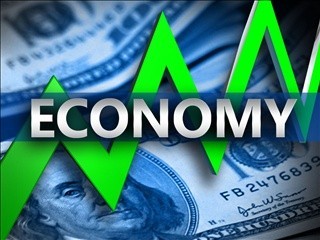WASHINGTON (AP) -- As a brutal winter yields to spring, the U.S. economy is showing renewed strength just as other major economies appear desperate for help.
Europe is clinging to a fragile recovery. Japan just imposed a tax hike that threatens its shaky economic comeback. And China's troubles are rattling the global economy.
The resilience of the U.S. economy, after a growth-chilling winter, was evident in Friday's jobs report from the Labor Department. It said employers added 192,000 jobs in March and 37,000 more than in January and February than previously thought.
With the economy making steady gains, the Federal Reserve has been scaling back its bond purchases, which have been intended to lower interest rates to spur growth.
"The U.S. is certainly doing better than Europe or Japan right now," says Nariman Behravesh, chief economist at IHS Global Insight.
Here's a closer look at the rest of the world's big economies:
- EUROPE
Just as the Fed reduces its stimulus in the United States, the European Central Bank is considering further steps to help the 18 countries that use the euro currency. The eurozone emerged from a recession - its second in six years - last spring. But the recovery has been faint: The eurozone economy is growing at a glacial 1 percent annual pace.
Mario Draghi, president of the European Central Bank, last week expressed concern about "protracted stagnation" and the eurozone's worrisome 11.9 percent unemployment, essentially unchanged from last year's record 12.1 percent.
In addition, inflation is running at dangerously low levels. Consumer prices rose just 0.5 percent in the year that ended in March. The ultimate fear is of deflation, when prices actually start falling. Deflation would hurt growth because tumbling prices cause consumers and businesses to postpone purchases and investments as they wait for still-lower prices.
On Thursday, the ECB kept its main interest rate unchanged at the record low of 0.25 percent. But Draghi said the ECB was ready to use "unconventional measures" to combat super-low inflation. The bank could further lower rates, offer cheap loans to banks or embark on an uncharacteristic Fed-style stimulus.
The eurozone faces another more fundamental problem: a credit crunch. Banks, clogged with bad loans left from the financial crisis, aren't lending to small and mid-sized businesses. And they probably won't until they raise more money to cover potential loan losses.
"Europe is still in convalescence," says Gustavo Reis, global economist at Bank of America Merrill Lynch. "The economy has been growing since the second quarter of last year. But they need to see significant credit growth."
Still, economists at Citi Research expect the eurozone economy to pick up somewhat this year, growing 1.3 percent after shrinking 0.4 percent in 2013.
- JAPAN
Japan's economy, enduring a two-decade slump, received a jolt last year from "Abenomics." That's the name for policies pushed by Prime Minister Shinzo Abe to try to spur inflation and generate growth by getting consumers and businesses to spend now, not later.
But Japan's efforts to invigorate the economy through government spending have strained its finances. The government's debt is twice the size of Japan's economy - by far the highest debt burden of any advanced economy. To reduce the debt, the government has raised the country's sales tax from 5 percent to 8 percent.
The Japanese economy, No. 3 worldwide, looks weaker than it did last fall when Abe agreed to the tax hike. A quarterly survey last week showed that Japanese businesses fear that consumers will respond to the higher sales tax by pulling back on spending. That's what happened the last time Japan raised its sales tax in 1997. Citi forecasts that Japan's economy will grow just 0.9 percent this year, down from 1.5 percent in 2013.
Still, the government and the Bank of Japan may try to soften the blow. Abe has promised 5 trillion yen ($48 billion) in fresh stimulus for the economy - more if the tax hike inflicts more economic damage than the government expects. The Bank of Japan could also intervene with Fed-style bond purchases if the economy needs further help.
"BOJ will have to act," says William Lee, global economist at Citi Investment Research. "The question is when."
-CHINA
China, the world's fastest-growing major economy, is slowing. Part of the deceleration from the sizzling double-digit increases of recent years is deliberate. Chinese policymakers want to create a sturdier economy, more dependent on consumer spending and less on exports and investments in infrastructure and real estate. And they're willing to accept slower growth to get there.
But now they fear that the economy is slowing too much and won't meet their 7.5 percent growth target. So Prime Minister Li Kequiang last week announced a mini-stimulus program: It will give small businesses bigger tax breaks, expand railroads and replace shantytowns with permanent housing.
But IHS' Behravesh says the stimulus will merely postpone a reckoning. China's investment boom, during which it built an overabundance of factories and houses, was financed with enormous debt, much of which is unlikely to be repaid. Over the next five years, Behravesh expects China's economic growth to slow significantly - to below 5 percent a year as the nation reforms its financial system.
A sputtering Chinese economy would hurt other countries that supply it with raw materials and do businesses with its companies.
"The Chinese story is one that's casting a big black cloud over the rest of Asia," Behravesh says.
Saturday
July 12th, 2025
2:39AM









